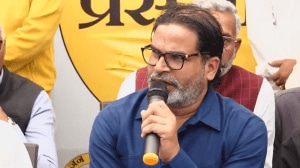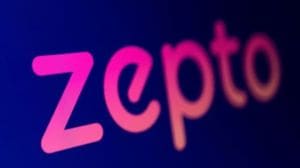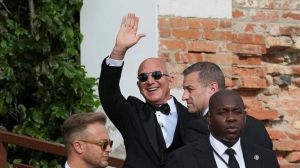The rise of the right in Italy
Giorgia Meloni's governing coalition in Italy veers considerably to the right, raising concerns that her reign may threaten the rights of minorities and strain Italy's relationship with the EU. However, for many, Meloni merely symbolises a shift long in the making. Since the time of Benito Mussolini, parties with fascist ideologies have featured in Italian politics in different ways and forms
 The new Italian Prime Minister, Giorgia Meloni has drawn sharp criticism for her ties to fascism
The new Italian Prime Minister, Giorgia Meloni has drawn sharp criticism for her ties to fascism Earlier this month, a party with neo-fascist roots, the Brothers of Italy (Fdl), won the most votes in Italy’s national elections, delivering the country’s first far-right led government since the Second World War.
Under the leadership of Giorgia Meloni, the Fdl has been absent from previous governing coalitions, a matter that seems to have given Meloni the outsider’s edge.
The Fdl has agreed to bring in the party of former Prime Minister Slivio Berlusconi, Forza Italia, and that of Matteo Salvini hard-right, League, as junior partners in a government that will be sworn in on Saturday.
The three parties won nearly 44 per cent of the vote. That being said, this election was marred by minimal turnout at 64 per cent.
Italian politics can get messy and Meloni seems to thrive in that mess. Known to be a far right candidate, she has toned down her rhetoric in order to come off as more of a centrist.
Cass Mudde, professor at the University of Georgia, writes in The Washington Post that the Italian elections “were unique because Meloni will be the first female prime minister of Italy and the first far-right prime minister in today’s Western Europe…but they were usual in the sense that far right parties and ideas have been part of the European political mainstream for at least two decades now.”
The roots of the far-right in Italy
Italy’s most prominent brush with the far right and fascism came during the brutal reign of Benito Mussolini. After his execution in 1945, responsibility for the creation of the Italian Republic was handed over to those who resisted Mussolini’s tyrannical ideals. However, fascism as a principle did not disappear alongside its most ardent proponent.
According to Alexander Reid Ross, a fellow at the Centre for Analysis of the Radical Right, a UK based research center, “nostalgia for Mussolini’s regime remained ingrained among many in the civil service, universities and industrial managers – not to mention the police and armed forces.” He writes in New Lines Magazine, while open fidelity to Mussolini was rare, members of all facets of Italian society would grow increasingly “frustrated with the corruption and glacial pace of the parliamentary system.”
However, while most people stayed away from publicly declaring their support for fascism, the Italian Social Movement (MSI) was a notable exception. Founded in 1946 by Giorgio Almirante, a chief of staff in Mussolini’s last government, the MSI drew fascist sympathisers and officials into its ranks following Italy’s defeat in the war.
As analysts Elettra Ardissino and Erik Jones, writing in Foreign Affairs Magazine, stress, many Italians were reluctant to attribute fascism for Italy’s defeat in WW2, instead blaming Mussolini’s decision to align with Nazi Germany.
Unlike Germans who were forced to thoroughly examine their brush with authoritarianism, in Italy, a sense of amnesia remains prevalent. According to a tweet by historian David Kertzer of Brown University, while there are 67 institutes for the resistance to fascism in Italy, there are no centers for the study of Italian fascism.
Additionally, tributes to Mussolini and his regime exist in abundance.
Building upon this national amnesia, the MSI remained a steady if not influential force in Italian politics during the Cold War. While it only polled in the single digits, historian Paul Ginsbord noted in his book The History of Contemporary Italy that its mere survival “served as a constant reminder of the potent appeal that authoritarianism and nationalism could still exercise among the southern students, urban poor, and lower middle classes.”
The MSI’s existence in political exile ended in the 1990s, when its party leader, Gianfranco Fini, Almirante’s protégé, ran for mayor in Rome. While he failed to win, he still secured 46.9 per cent of the vote — enough to establish him and his party as a major player in Italian politics. Within a year, Fini renamed the MSI as the National Alliance.
Meloni, a youth member of the MSI, would go on to form the Fdl as an offshoot of the National Alliance in 2009. However, it was Berlusconi who facilitated their rise to national prominence, and with it, the normalisation of the far right.
Berlusconi was the first Italian Prime Minister to bring the politics of the far right into the mainstream, including the National Alliance in his coalition governments on three occasions between 1994 and 2011. He boasted that he “invented the centre-right in 1994” by allying with the “League and the fascists,” going as far as to trivialise Mussolini’s crimes and appointing prominent neo-fascists to leadership positions.
The rise of Meloni and her party
Starting with arguments against, while many international commentators brand Meloni’s party with a fascist label, Italian coverage is far more forgiving. For one, many attribute Meloni’s victory less to her policies and more to the fact that she is a political outsider. The argument goes that even if Meloni herself is a fascist, the Italians that voted her into power are not.
 Far-Right party Brothers of Italy’s leader Giorgia Meloni shows a placard reading in Italian “Thank you Italy” at her party’s electoral headquarters in Rome, early Monday, Sept. 26, 2022. (AP)
Far-Right party Brothers of Italy’s leader Giorgia Meloni shows a placard reading in Italian “Thank you Italy” at her party’s electoral headquarters in Rome, early Monday, Sept. 26, 2022. (AP)
Also concerning for right wing sympathisers is the embarrassing collapse of other right wing challengers.
Before the pandemic, the Fdl polled so low that Meloni considered quitting the party, however after Salvini was accused of corruption and colluding with Russia, Meloni’s party rose in prominence. Another right-wing party, the Five Star Movement, lost half its vote share after its surprise victory in 2018, largely due to its mismanagement of the Covid crisis. Similarly, Berlusconi has also been tainted by scandal and enjoys considerably less support than he did during his political prime.
“There is a danger of radicalism with Meloni, but the Brothers of Italy is not a neo-fascist party,” says Marianna Griffini, lecturer at King’s College, London who spoke with indianexpress.com. She argues that while the Fdl was born from the ashes of the MSI, the two cannot be considered the same.
According to Meloni herself, she is more along the lines of a mainstream conservative. “The issue of individual freedom, private enterprise in economy, educational freedom, the centrality of family and its role in our society, the protection of borders from unchecked immigration, the defense of the Italian national identity — these are the matters that we preoccupy ourselves with,” she said in an interview with the Washington Post last month.
However, to others, the distinction between the MSI and the Fdl is far more nuanced. According to Davide Monaco, a professor at the University of Manchester, who spoke with indianexpress.com, “there is a direct line of descent from Mussolini’s fascist party and the Brothers of Italy.” However, Monaco adds that while the Fdl may be the “grandchildren” of fascism, they aren’t quite the same. For one, he notes, fascism was born out of violence and disruption. While Meloni echoes some of Mussolini’s sentiments, namely putting the state, the church, and the family, above all else, she is willing to establish that change within democratic institutions. She is also unlikely to resort to violence or subverting democratic rights.
That being said, the links between Meloni and the neo-fascist MSI cannot be understated. Apart from being a proud member of the MSI in her early political career, Meloni also retained its historic headquarters and prominently displays a fascist symbol, the tricolour flame, as part of the Fdl’s logo.
She has also been reluctant to criticise Italy’s fascist past, writing in her 2021 autobiography that “as is the case with all other nations, the path we have travelled is complex, much more complicated than many want to make known.”
Ruth Ben-Ghiat, a professor at New York University, writes in an article for The Atlantic, that the Fdl, under Meloni, has obsessed over demographics and birth rates, strongly opposed abortion and immigration, and has maintained clear ties to its ideological predecessor, the National Alliance.
Towards that end, Meloni has spoken of the need to preserve Italy’s racial purity, blaming the EU for conspiring to unleash “uncontrolled mass immigration” in Italy.
During the election campaign, she notably toned down her rhetoric, instructing her party members to stop making extreme statements, referencing fascism, and engaging in the Roman salute, a gesture that closely resembles the Nazi salute.
So, what does all of this mean for Italy, the EU, and the rest of the world?
Implications of the election
First and foremost, Meloni’s priorities must be centred around the economy. Italy is currently contending with an array of problems, including a cost-of-living crisis, surging inflation and energy prices, and soaring debt.
For that reason, Meloni, but especially her coalition partners Berlusconi and Salvini, will have to make nice with the EU, despite their historic apprehension towards the bloc. Italy is the biggest recipient of the EU’s Covid recovery fund, being set to receive 191 billion euros over the next six years, subject to implementing a recovery plan laid out by Brussels.
According to a report from the Wilson Institute, an American think tank, Meloni will have to maintain several of the economic policies implemented by her predecessor and former European Central Bank President, Mario Draghi. The report says that given Italy’s reliance on EU funding, Meloni cannot afford to steer far from Dhragi’s course both in terms of economic policy and relations with the EU.
 Italian Premier Giorgia Meloni addresses the lower Chamber ahead of a confidence vote for her Cabinet, Oct. 23, 2022. (AP)
Italian Premier Giorgia Meloni addresses the lower Chamber ahead of a confidence vote for her Cabinet, Oct. 23, 2022. (AP)
As a result, according to Monaco, all three coalition partners have moderated their stance towards the bloc, leaving Italy’s participation in the EU all but guaranteed.
In terms of Russia’s invasion of Ukraine, Meloni remains aligned with her EU counterparts. While Salvini and Berlusconi both have long standing ties to Putin, Meloni has publicly denounced the invasion, pledging weapons and support to the Ukrainian people. As Griffini states, “Meloni’s support towards Ukraine is unwavering.”
Domestically, however, things aren’t quite as straightforward.
On immigration, the Fdl, along with the rest of the right in Italy, is clear in its messaging. Griffini, in a 2022 article for European Politics and Security, alludes to Italy’s historical ambivalence towards colonialism. She writes that Italians continue to view their colonial conquests as an attempt to civilise the “other” – in this case, their colonial subjects – and the radical right in particular, is loath to apologise for the atrocities committed towards the same.
Today, the “other” is no longer the former colonial subjects, but instead, migrants seeking economic opportunity or a safe haven in Italy. For them, the election could be disastrous. The Fdl has already touted a near zero tolerance policy for illegal migration, indicating that it would also fight against Islamic culture permeating Italian towns.
For many Muslim immigrants in Italy, this approach could be life altering.
“Meloni will radicalise the nativist component of nationalism with the securing of borders and blockades against migrant ships,” Griffini says.
The message is clear, Italy wants no migrants whether they are inside the country or out of it.
In terms of minorities and women, the Fdl poses an equally worrying threat. In June, Meloni spoke at a campaign event for Vox, a right-wing party in Spain, decrying that “the secularism of the left and radical Islam threaten our roots.” Compromise with such opponents is unthinkable, she said, and parties like Vox and the Fdl needed to say a clear no to the “LGBT lobby,” to “gender ideology,” and to “mass immigration.”
According to Monaco, while these values and ideas have thus far been abstract, they could soon translate into policies that will adversely affect workers, migrants, women and the LGBT community.
For them, there may be some consolation in one sobering and shocking statistic. In the mercurial world of Italian politics, 68 governments have risen and fallen in only 77 years.
One would not then bank on the durability of Meloni’s sharp rise to the upper echelons of power.





- 01
- 02
- 03
- 04
- 05


























